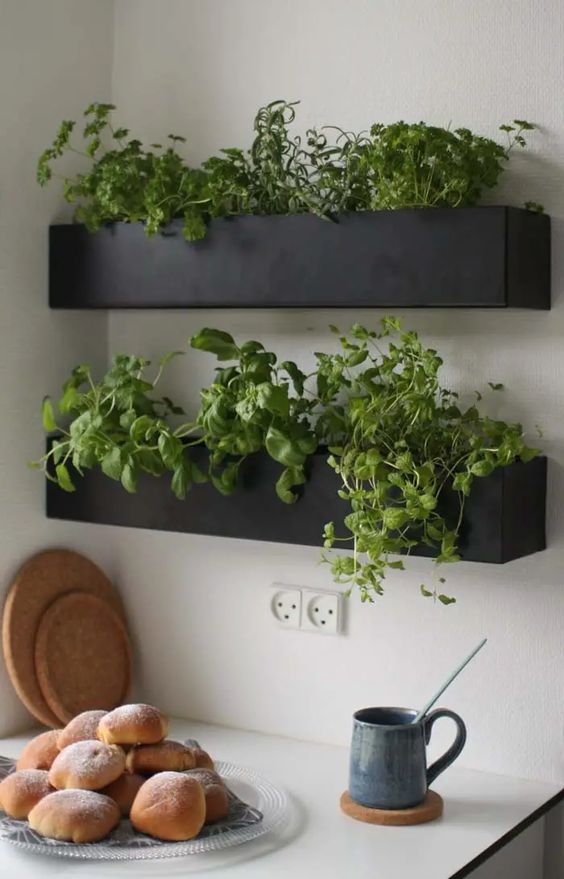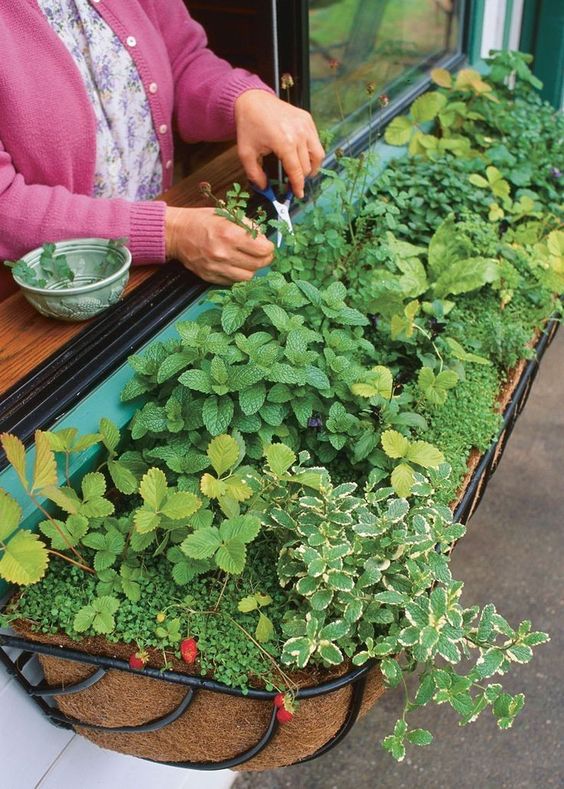Growing herbs in your apartment is a delightful way to elevate your culinary endeavors and add a touch of greenery to your living space. Whether you’re a seasoned gardener or a complete novice, cultivating herbs indoors can be a rewarding and straightforward experience. Here’s a guide on how to get started:

1. Choose the Right Herbs: Start with herbs that thrive indoors. Basil, mint, rosemary, thyme, parsley, and chives are excellent choices. Consider your personal preferences and what you often use in your cooking.
2. Select Suitable Containers: Herbs can be grown in pots, containers, or even window boxes. Ensure they have proper drainage to prevent overwatering. Terracotta or ceramic pots work well as they allow the soil to breathe.
3. Use Quality Soil: Herbs prefer well-draining potting soil. A mix of regular potting soil and perlite or vermiculite provides the right balance. Ensure your containers are filled to about an inch from the top to allow room for watering.
4. Find the Right Spot: Herbs need plenty of sunlight. Choose a sunny windowsill that receives at least 6-8 hours of indirect sunlight daily. If natural light is limited, you can supplement with grow lights.
5. Watering Wisely: Herbs like their soil to dry out slightly between waterings. Stick your finger into the soil; if it feels dry an inch deep, it’s time to water. Be careful not to overwater, as herbs are susceptible to root rot.
6. Temperature and Humidity: Most herbs thrive in temperatures between 60°F to 70°F (15°C to 24°C). Indoor humidity levels are usually suitable, but if your apartment is very dry, consider using a humidity tray or misting the plants occasionally.
7. Pruning and Harvesting: Regularly pinch or prune your herbs to encourage bushier growth. When harvesting, use sharp scissors or pruning shears to snip off the top leaves. Avoid taking more than one-third of the plant at a time.
8. Fertilizing: Herbs benefit from occasional feeding. Use a balanced, water-soluble fertilizer diluted to half strength every 4-6 weeks during the growing season (spring to early fall).
9. Common Herb Issues: Watch for signs of pests (like aphids or spider mites) and diseases (such as powdery mildew). Early detection and treatment are crucial. Neem oil or insecticidal soap can help control pests.
10. Repotting: As your herbs grow, they may outgrow their containers. Repot them into slightly larger pots with fresh soil as needed.

Growing herbs in your apartment not only provides you with a fresh and flavorful supply of seasonings but also enhances your indoor environment. The process can be therapeutic and rewarding, allowing you to connect with nature even in a limited space. With proper care and attention, your indoor herb garden will thrive and become a source of joy and culinary inspiration.